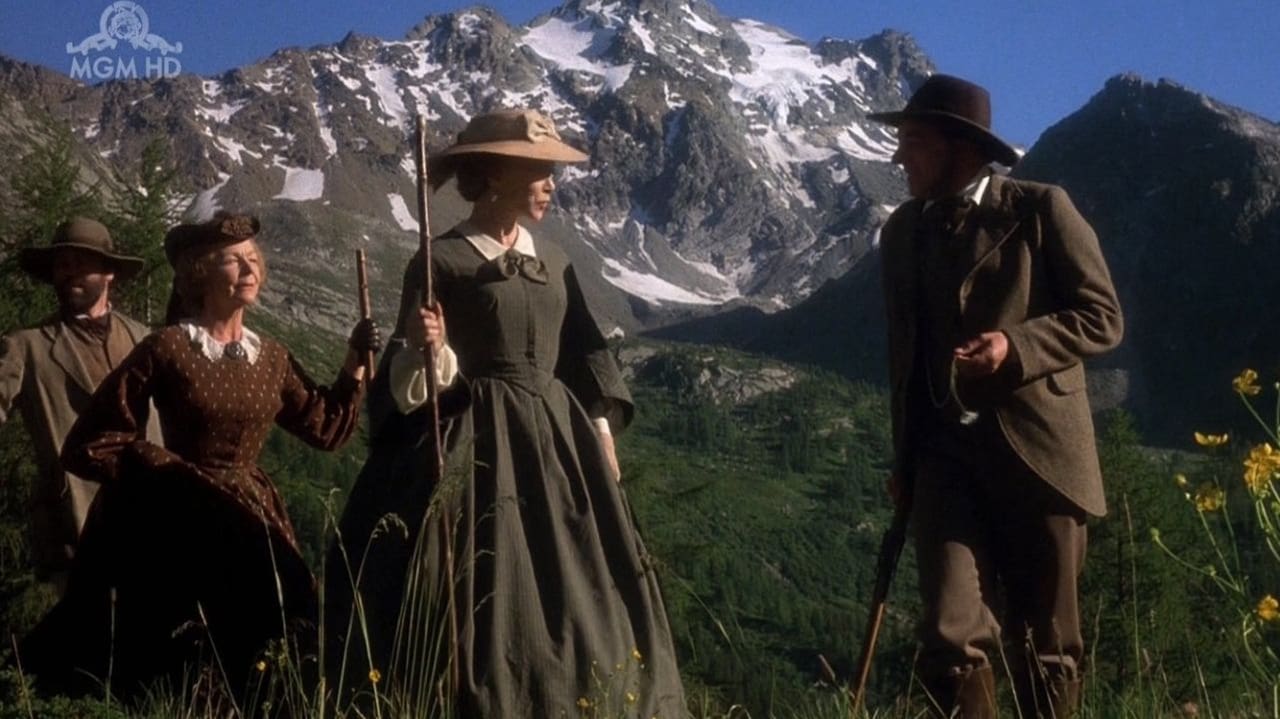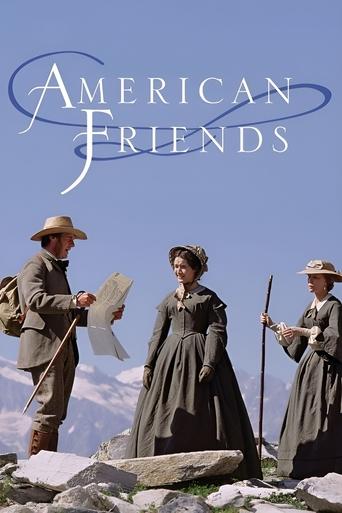

One of the worst movies I've ever seen
... View MoreAwesome Movie
... View MoreThe joyful confection is coated in a sparkly gloss, bright enough to gleam from the darkest, most cynical corners.
... View MoreStory: It's very simple but honestly that is fine.
... View MoreMy wife saw this movie was scheduled to air, uncut, on the MGM channel and recorded it for me, knowing that I'm a big Monty Python and Michael Palin fan. In fact, I'm such a Python fan that I was surprised to find a film starring Palin and Connie Booth (and featuring Simon Jones and Charles McKeown) that I'd somehow never heard of. I'm guessing this movie wasn't very well promoted in the U.S. Which is not surprising, as it deals with the very British subject of life at Oxford university in the nineteenth century and features dramatic roles from actors known on this side of the pond strictly for their comedy.Palin plays Mr. Ashby, a teacher at Oxford who has devoted his entire life to his work and is in line to be voted the next president of the college when the elderly current president meets his end. Despite his protests, Ashby's colleagues insist that he take a vacation. While hiking in the Alps, he meets a single woman his own age (Booth) and her adopted daughter. For reasons that are never explained both women fall instantly and deeply in love with him. Seems pretty unlikely, but there wouldn't be a film without it (and, apparently, this is all based on a true story).Any hint of a romantic relationship would ruin Ashby's chances at the college presidency (fellows at the college are expected to remain celibate), so when the women follow him back to Oxford it becomes a scandal. Naturally Ashby's chief rival for the presidency, Oliver Syme, does everything he can to add fuel to the flames. Somehow, no one seems to notice that Syme himself is a womanizer.In the end, Ashby has to decide whether to keep trying to climb the career ladder at the college or leave and start a new life with one of the two women.So this obviously isn't a Pythonesque comedy - other than a few wry smiles it had hardly any humor at all. But the scenery is beautiful (especially the scenes in the Alps) and the atmosphere and acting are well done. The pace is a bit slow, but it's a period drama so that's to be expected. In the end I enjoyed the movie, even though it wasn't at all what I thought it would be.
... View MoreThe "child mentality" within each one of us clings to tradition. If you can remember a happy childhood, you are probably recalling a time when you instinctively distrusted change - because "change" might mean a "change for the worse". By contrast, in those teenage years you welcomed change (it's something to do with hormones). Will this colourless nineteenth century academic Francis Ashby (Michael Palin) escape from the "grown-up childhood" of suffocating university tradition - including celibacy for most of the faculty (they're called "fellows")? The auspices are not encouraging. Everyone in the system, including the Rev Ashby (yes, he's entitled to become an Anglican vicar, if he should fail as a "don") - they're all so self-satisfied. Nothing needs to change, because everything is perfect the way it is. You begin to wonder: How did this hidebound institution survive into the twentieth century? Why is the name "Oxford" still synonymous with the highest standard of intellectual achievement? When did they stop thinking that the study of ancient Greek and Latin was the be-all and end-all? The answer is that Oxford did change, but slowly and reluctantly. In 2004 New Zealander John Hood was appointed CEO (correct title: "Vice-Chancellor") of the University, with a clear brief: the whole place was badly in need of another shake-up. The details are in Wikipedia. Hood got quite a lot of "reforming" done, but after three years of hammering away at entrenched opposition and obstruction, he'd had enough - he wouldn't be seeking a renewal of his 5-year contract.Much of the energy in the movie "American Friends" went into securing its accuracy and authenticity, almost as a sociohistorical study; so any viewer given to impatience might wonder if this isn't some sort of documentary - enlivened with a modest story line. If you never went to Harvard, you might wonder what a premium university looks like - inside. Thanks to WGBH television, we can watch Professor Michael Sandel lecturing on political ethics to a large auditorium full of very sharp young minds (they're all supposed to have read the challenging course texts). So what was uni like 150 years ago? - it was different! The movie is a test of your imagination as a viewer - can you think your way back into this artificial world of fuddy-duddy pedagogical privilege, a world that did actually exist? There's humour, but it mainly consists of the dry wit and in-jokes of a community of cleverness, cut off from the crudities of the "real world".The women (who are after all the eponymous "American Friends") are underutilised. Connie Booth ("Caroline Hartley") manages to engage in some dialogue, but the lovely Trini Alvarado ("Elinor") is given very little to do (except model Victorian frocks). Apart from perving at a distant male bather through binoculars, the most interesting thing she does in the movie is to fall into a lake, revealing a glimpse of ankles that are otherwise concealed under all those skirts and petticoats. But isn't all this authentic? - yes it is. A young lady was supposed to be decorously genteel - yes I know! But it takes a mental effort to realise that this code of female passivity was an essential aspect of an era that also featured Florence Nightingale, Harriet Beecher Stowe, George Eliot, Ada Augusta King, Annie Besant and Victoria Woodhull.Enter the villain. The villain is (of course) change, reform, progress - symbolised by "Oliver Syme", a role nicely understated by Alfred Molina. It's no surprise that Syme might have been considered by your typical puritan Victorian as a "bit of a bounder" - not entirely reliable in his relations with the fairer sex. Just like Ashby and the other college tutors, Syme is a "fellow" - required to remain a celibate bachelor, presumably for the rest of his life. The elderly college President is on his last legs, and Syme is Ashby's main rival in the forthcoming election for a new President. But will a whiff of scandal discredit either of these candidates? Ashby met Caroline and Elinor when he was on holiday in Switzerland. Now they come to visit him in Oxford. But surely it's all completely innocent! Ashby is rather taken by these ladies, but which one does he have the stronger feelings for? And which one has the stronger feelings for him? Nineteenth century decorum enables the movie to keep us guessing - or at least it tries to. And which impulse will win in the end? - Ashby's ambition to become college President, or these unfamiliar stirrings of the heart? Meanwhile they're putting on an amateur production of "King Lear" - which doesn't seem to have much to do with the main plot. One of the people that Ashby met in Switzerland was an Oxford physician, Dr Weeks (Alun Armstrong). Weeks is trying to ingratiate himself with Ashby because he wants to get his son into the college. If the young chap is not up to it (the oral entrance exam requires the memorisation of a hefty chunk of Latin), will Ashby, as chairman of the entrance panel, turn Dr Weeks into a dangerous enemy? The bottom line: You'll enjoy this movie? It depends. If you prefer a leisurely 10-part TV adaptation of a Dickens novel to an overcooked two-hour movie version, then "American Friends" is probably for you. But you'll need to be paying attention. Things are happening even when nothing appears to be happening. I liked it.
... View MoreThere is plenty of atmosphere in this film. It portrays the conflict that occurred in the universities of the day (1866) between the traditional and the newer blood that was required to bring the universities into the modern world. It is almost an allegory showing the old world (Oxford) as it battles against the influence of new ideas represented by the new world (the 'American Friends'). Michael Palin is excellent in the role of Mr. Ashby. Throughout the film he portrays in a wonderful manner the bewilderment of facing the challenge of coming to terms with new order represented by Mr. Sime (Alfred Molina) in the challenge for the presidency of the college. In the end he follows his heart (and probably his head as well) and leaves the old world to its devices. Well worth watching.
... View MoreMichael Palin shows that he has grown beyond his Monty Python days, but he has not left them far behind. His droll portrayal of an Oxford fellow, one who must avoid marriage at all costs, is sheer delight. He meets and cannot avoid falling in love with an American woman, but it is the depth and sincerity of his love that surprises him and us. The cinematography is stunning in Switzerland, and all dark days and wooden paneling in Oxford, in both cases conveying a metaphor for Palin's interior struggle. Wonderful and gentle.
... View More